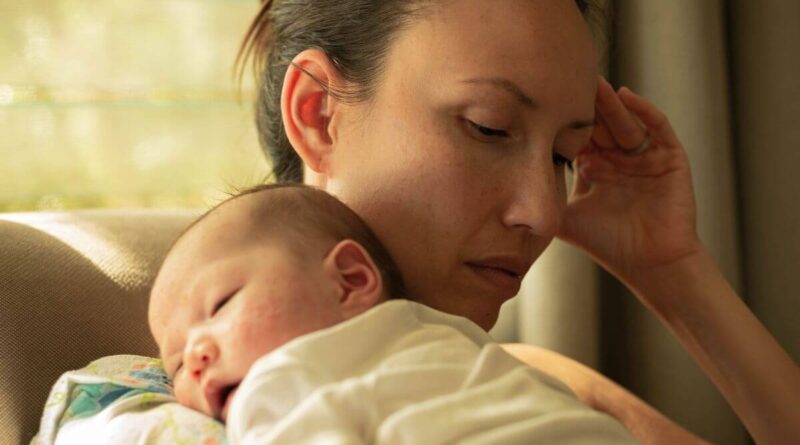Symptoms of CMPA – Is your baby suffering with cow’s milk protein allergy?
Cow’s milk protein allergy (CMPA) is the most common food allergy in babies and young children affecting 2-3% of the population.
But the symptoms of CMPA are sometimes missed or mistaken for ‘just an unsettled’ baby.
In this blog I’ll take you through the symptoms of CMPA so that you know what to look for and also when to seek the support of a healthcare professional if you are unsure of what to do.

What is Cow’s Milk Protein Allergy (CMPA)
Cow’s milk naturally contains a variety of nutrients, including protein and when some babies consume it, their bodies react to these proteins triggering an immune response.
These allergic reactions may happen immediately after consuming cow’s milk products – called an IgE mediated response, or may be delayed – called a non-IgE mediated response.
The difference between CMPA and lactose intolerance
Lactose intolerance is different from CMPA as it involves a reaction to the milk sugar called lactose, instead of the protein.
Children with lactose intolerance do not have an allergy, instead they have trouble breaking down the lactose in foods because they are missing the ‘lactase’ enzyme.
If you think your baby or child might have a lactose intolerance it is really important to go see a healthcare professional for further advice.

Symptoms of CMPA in Infants
Signs and symptoms can vary from baby to baby. Below I’ll go through how to recognise if your baby has an allergy to cow’s milk.
If any of these resonate, book an appointment with your GP as soon as possible, so that you can get access to a dietitian urgently.

Gastrointestinal symptoms
Digestive symptoms can be diarrhoea and constipation, vomiting and reflux. All of these are common symptoms of a cow’s milk allergy.
If you notice streaks of blood or mucus in their nappy, this is a sign of inflammation within their gastrointestinal system so take your baby to the GP.
Sometimes it’s hard to identify exactly what’s going on.
If you feel your baby is fussy, unsettled or you think they might be uncomfortable with colic, take them to the GP. These are all symptoms of CMPA.

Respiratory symptoms
If your baby seems to have a persistent runny or blocked nose, this could be a cow’s milk protein allergy. A persistent cough and wheezing, are all linked to allergies.

Skin symptoms
Whilst food allergies don’t cause eczema, they can make eczema symptoms worse. If you’re always trying to clear their skin but it’s not getting better, it might be an allergy.
Raised red bumps (hives) that are typical allergic symptoms. They come in different shapes and sizes.
Some skin reactions can look like swelling. These are angioedema.
Poor growth
Many babies who have a cow’s milk protein allergy don’t follow their growth centile lines as expected. This may be because they are difficult to feed and seem as though they’re refusing their breast or bottle.

Timing of symptoms after consuming milk
Reactions can be immediate (called IgE) or delayed (called non IgE) which makes CMPA difficult to diagnose.
Immediate reactions occur within minutes to 2 hours, Delayed symptoms can surface anywhere from two hours to several days later.
Delayed onset symptoms of CMPA might cause continuous discomfort throughout the day and night. Often babies appear very unhappy and unsettled.
These symptoms can also be representative of other medical conditions, so get a professional involved to make sure the correct diagnosis is made.

How to find out if your child has CMPA
A dietitian, GP or a paediatrician will diagnose CMPA.
If symptoms are immediate, you need to see a GP who will refer your baby to a consultant paediatrician. They will organise either skin prick tests and/or blood tests to confirm the diagnosis.
If you suspect delayed onset (non IgE) allergy, there’s no clinical test. Unfortunately tests will come back negative and your baby will of course still have symptoms.
Instead, an elimination diet conducted by a registered dietitian confirms the diagnosis.
Breastfeeding mothers eliminate all traces of cow’s milk from their diet.
Formula fed babies are prescribed an alternative cow’s milk free formula.
After 2-4 weeks, a dietitian will show organise a cows milk challenge. Cows milk is gradually reintroduced in a controlled way.
If symptoms recur, the allergy is confirmed.
Whichever professional you see, the diagnosis of CMPA also involves a detailed allergy focussed clinical history and a food diary.

Management of CMPA
When diagnosed with a cow’s milk protein allergy, your baby will need to follow a dairy free weaning diet.
If you are breastfeeding you may have to adopt a milk-free diet too. Check with your dietitian or allergy specialist doctor as not all babies react through breastmilk.
If you do need to cut it out, seek advice on how to ensure you replace the missing nutrients. This is important for ensuring the quality of breastmilk and protecting your own health.
Formula fed babies will continue on their prescribed hypoallergenic formula.
Many babies outgrow this allergy by age one. Your dietitian will guide you on safely reintroducing milk. Babies who have immediate onset allergies (IgE) have reintroduction in hospital.
If you struggle to access an NHS dietitian you can work with us privately.

Frequently Asked Questions
Is CMPA lifelong?
Most babies will grow out of their milk allergy by the time they turn 12 months old. A small number of children might still have symptoms until school age.
Can my child develop other allergies?
If your baby has one allergy, this can put them at higher risk of having another allergy. Around 50% of babies with CMPA will also have an allergy to soya.
Are there treatments other than diet modification?
A treatment called oral immunotherapy is a programme that looks to make your child less sensitive to an allergen. However it’s unlikely that this would be provided on the NHS to a baby with a milk allergy.

The post Symptoms of CMPA – Is your baby suffering with cow’s milk protein allergy? appeared first on The Children's Nutritionist.




